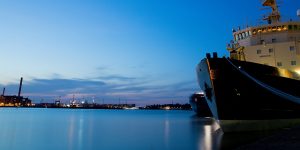Keep Fin Fish Free Act Introduced
 This month a new bill called the Keep Fin Fish Free Act (H.R. 2467) was introduced in response to the growing concerns regarding aquaculture operations. Alaska Congressman Don Young (R-Alaska) introduced legislation that would stop officials from the Secretary of Interior and the Secretary of Commerce from authorizing commercial finfish aquaculture operations in the Federal Exclusive Economic Zone (EEZ) unless specifically authorized by Congress. This legislation has many supporters across environmental and anti-fish farming organizations including Healthy Gulf, Institute for Fisheries Resources, Friends of the Earth, and NOAA.
This month a new bill called the Keep Fin Fish Free Act (H.R. 2467) was introduced in response to the growing concerns regarding aquaculture operations. Alaska Congressman Don Young (R-Alaska) introduced legislation that would stop officials from the Secretary of Interior and the Secretary of Commerce from authorizing commercial finfish aquaculture operations in the Federal Exclusive Economic Zone (EEZ) unless specifically authorized by Congress. This legislation has many supporters across environmental and anti-fish farming organizations including Healthy Gulf, Institute for Fisheries Resources, Friends of the Earth, and NOAA.
The concerns raised regarding these facilities involve pollution spread by untreated wastewater, the spread of pests and diseases to native species, the introduction of even more antibiotics into our waters, and spills like the incident that occurred in August 2017 that resulted in more than 260,000 non-native Atlantic salmon being released into Puget Sound. However, one of the greatest concerns among aquaculture critics is the need to harvest wild fish in order to produce the feed necessary to raise open net pen Atlantic salmon.
“The seafood industry is critical to Alaska’s economy, and we must be doing all we can to protect the health and integrity of our state’s wild fish stock,” said Congressman Don Young. “If not properly managed, industrial aquaculture operations threaten Alaska’s unique ecosystem with non-native and genetically modified fish species. My legislation takes needed steps to prevent the unchecked spread of aquaculture operations by reigning in the federal bureaucracy, and empowering Congress to determine where new aquaculture projects should be conducted. It’s up to us to ensure that our oceans are healthy and pristine, and I urge my friends on both sides of the aisle to join me in this important effort.”
 Maritime Injury Law Blog
Maritime Injury Law Blog



 Six people are confirmed dead after two floatplanes collided near Ketchikan, Alaska. Originally, 2 people were missing, but the U.S. Coast Guard and Ketchikan Volunteer Rescue Squad located the remaining two near the crash site of the Beaver floatplane. They were deceased.
Six people are confirmed dead after two floatplanes collided near Ketchikan, Alaska. Originally, 2 people were missing, but the U.S. Coast Guard and Ketchikan Volunteer Rescue Squad located the remaining two near the crash site of the Beaver floatplane. They were deceased.




